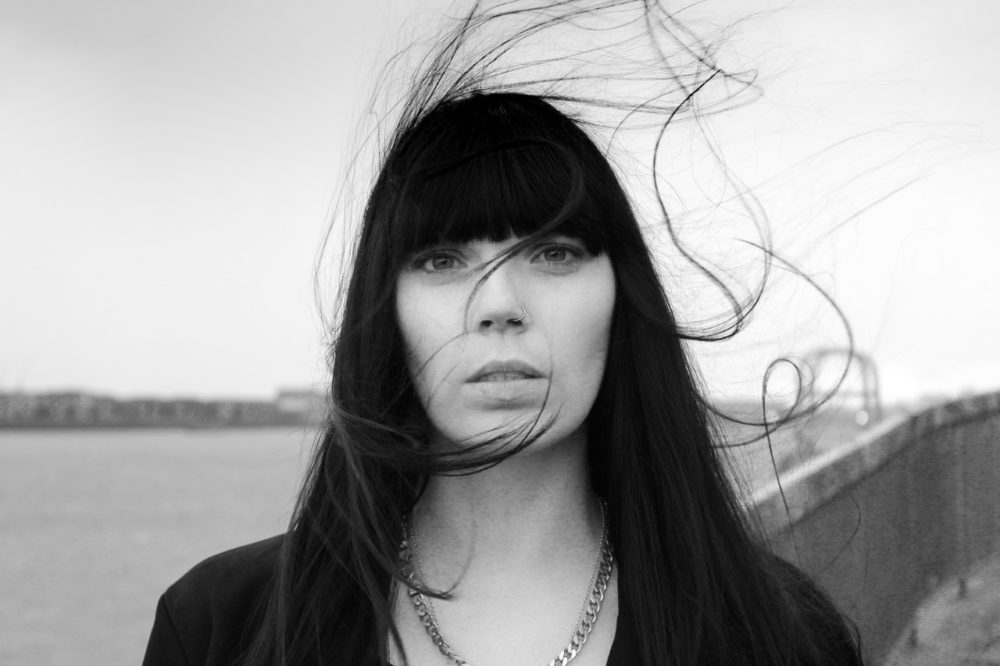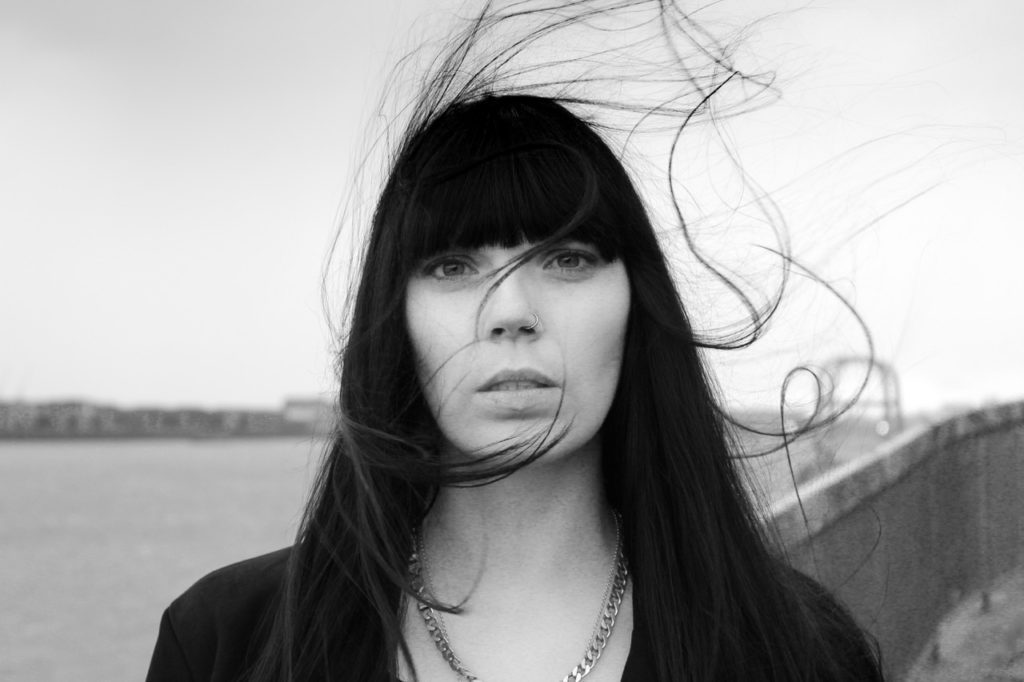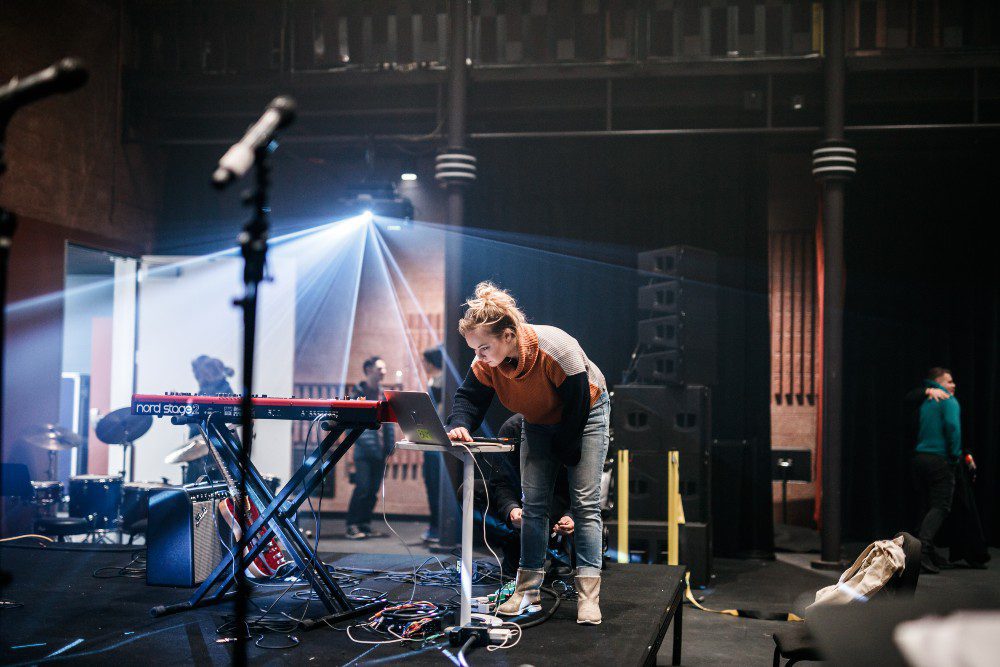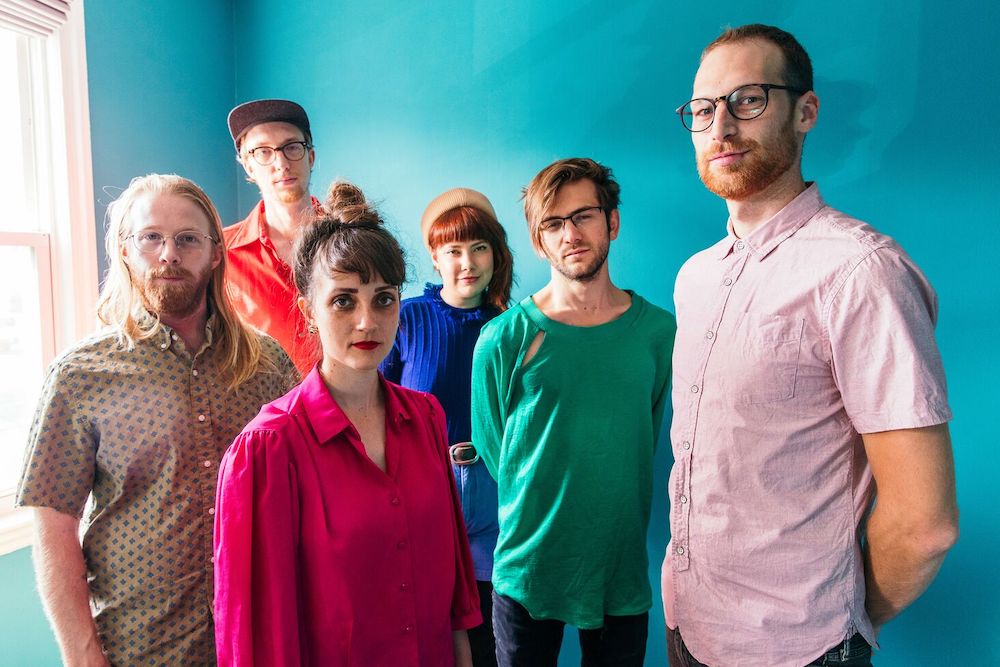

A.A. Williams is a classically trained pianist and cellist, a multi-instrumentalist, songwriter, and vocalist. Her beautiful, dark debut album Forever Blue was recorded in the two-bedroom North London apartment she shares with her husband, bassist Thomas Williams.
Released in July via Bella Union, Forever Blue combines Williams’ skillful classical arrangements with post-rock and metal elements from guest vocalists Johannes Persson and Fredrik Kihlberg of Swedish metal band Cult of Luna. While other artists may have felt out of their depth with recording an album from home, Williams says, “I didn’t think too hard about it, I just got on with it really.”
Williams’ process is to record demos then take the elements and refine them in post production. The beauty of Forever Blue is that much of the material from the demos remains on the final album. “It wasn’t necessarily our plan to record the album at home in our apartment,” she says. “But we didn’t have to worry about paying and booking a studio this way. It was made before COVID-19, so it wasn’t the product of lockdown. Ultimately, the demo sounds like a less shiny product of the original, which I like. A lot of what I do in the demo stays, to be honest, so a lot of that original stuff landed on the album.”
On Forever Blue, Williams did all the guitars, the cellos, the keyboard instruments and all the vocals. “Having the ability to play the cello is so handy because I can put strings on stuff, but I’ve done it for so long, I consider it usual,” she says. “My dog makes a few appearances on the record. The sounds of North London, ambulances from the nearby hospital, are on there too.”
The lack of perfection or flawless production gives Forever Blue a raw element, “not shiny-shiny,” as Williams says. This is also part of the joy of working with her husband, who is on the same page in terms of writing and producing.
“It’s great working with my husband,” she confides. “Some people aren’t good at working with their partner, but for us, it works so well. He takes care of all the bass stuff; I trust his instincts a musician so I let him write and play his parts. It’s great to have someone to bounce ideas off [who will] be honest.”
Less familiar were Persson and Kihlberg, but the pairing was fortuitous. The duets are both ferocious and bleak, born of an unpredictable idea perhaps, but a musical match that makes sense on the album. “I didn’t know the Cult of Luna guys personally but we shared the same booking agent,” Williams explains. “My agent sent Johannes my first EP and we communicated by emails so it was easy to sort out. We did it all remotely since they were in Sweden and I was in the UK, but it was awesome to work with them. We went on tour together last November so it was nice to meet each other properly, touring around Europe.”
After a childhood and teenage years spent learning classical instruments including cellos and the piano, Williams’ first discovery of heavy music came from an unlikely place: a movie soundtrack. “When I was younger, movies were a great way for me to discover music,” she says. “I’d seen The Matrix and my parents bought me the soundtrack. It had Deftones’ ‘My Own Summer‘ on it and it blew my mind, and also Marilyn Manson, Rammstein and Rage Against The Machine. I loved the Spawn soundtrack too. Lost Highway had a great soundtrack.”
Williams’ album is cinematic in that same way, but also confessional, both melancholy and fierce in turns. I wonder whether any of the songs still hit her emotionally, viscerally?
“I’ve known my music since it was a tiny little seed, so you can never have the experience of listening to it for the first time,” she says. “I’ve been hanging out with the songs for six months before anyone else hears them. I have a closer relationship with the songs in terms of performing them live rather than songs to just listen to.”
Not that performing live is on the schedule of many musicians at present, though Williams has overcome logistical obstacles to do social media streams. “It’s hard work to do the live performance on social media,” Williams admits. “This is one of the blessings and curses of this pandemic. It’s forced us to learn new stuff and communicate in new ways and to think outside the box. The logistics are not quite so simple. Having said that, it was super fun. It was so nice to be able to get together and make some noise.”
Williams’ next task is to return to writing, a process she’d normally take to local cafes in order to prevent binge watching TV or cleaning instead. “Usually, my songs start with piano and voice, or guitar and voice. I work on the chord progression, speed and key first, then I start to vocalise a melody on top. From there, usually I record the instrumental part and take my little notebook and sit in coffee shops humming away for a long time – getting funny looks. Then, once I’ve got the melody and the instrumentation, I build the layers up.”
While she has not considered the specifics of her next album, nor is she writing with this front of mind at the moment, Forever Blue has provided her the confidence to approach the next album with one under her belt. The critical acclaim certainly doesn’t hurt, either. But, in her humble and sweet way, Williams is more interested in talking about her dog, who makes frequent appearances on her Twitter feed. “Everyone needs some pictures of small dogs in their lives,” she says.
Follow A.A. Williams on Facebook and Instagram for ongoing updates.




